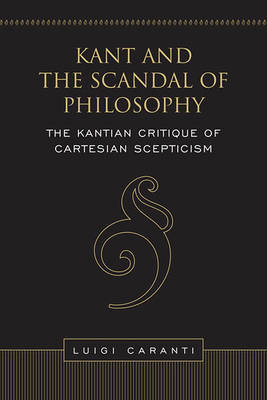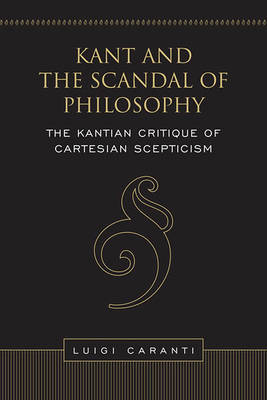
- Afhalen na 1 uur in een winkel met voorraad
- Gratis thuislevering in België vanaf € 30
- Ruim aanbod met 7 miljoen producten
- Afhalen na 1 uur in een winkel met voorraad
- Gratis thuislevering in België vanaf € 30
- Ruim aanbod met 7 miljoen producten
Omschrijving
Kant considered it to be scandalous that philosophy still had not found a rational proof of the existence of the external world during his time. Arguably, the scandal continues today because scepticism remains a widely debated and extremely divisive issue among contemporary thinkers. Although scholars have devoted considerable attention to Kant's arguments against Cartesian scepticism, the literature still presents gaps and inaccuracies that obscure a full understanding of this issue and its significance for contemporary philosophy. In Kant and the Scandal of Philosophy, Luigi Caranti corrects this omission, providing a thorough historical analysis of Kant's anti-sceptical arguments from the pre-critical period up to the 'Reflexionen zum Idealismus' (1788-93).
Caranti demonstrates how reconstructing Kant's critique of scepticism is crucial for understanding the origin of his philosophy and for avoiding serious mistakes that still serve as obstacles to the proper understanding of the Critique of Pure Reason. In particular, Caranti shows how the sceptical challenge leads Kant to the critical stage of his thought. Moreover, this study responds to recent criticism of transcendental idealism, showing how it can serve as the main premise of a powerful anti-sceptical argument whose main structure is suggested by Kant in the 1781 Fourth Paralogism. Erudite and engaging, Kant and the Scandal of Philosophy fills an important void in the literature and breathes new life into this field of inquiry.
Specificaties
Betrokkenen
- Auteur(s):
- Uitgeverij:
Inhoud
- Aantal bladzijden:
- 228
- Taal:
- Engels
- Reeks:
Eigenschappen
- Productcode (EAN):
- 9780802091321
- Verschijningsdatum:
- 1/07/2007
- Uitvoering:
- Hardcover
- Formaat:
- Genaaid
- Afmetingen:
- 162 mm x 230 mm
- Gewicht:
- 485 g

Alleen bij Standaard Boekhandel
Beoordelingen
We publiceren alleen reviews die voldoen aan de voorwaarden voor reviews. Bekijk onze voorwaarden voor reviews.











